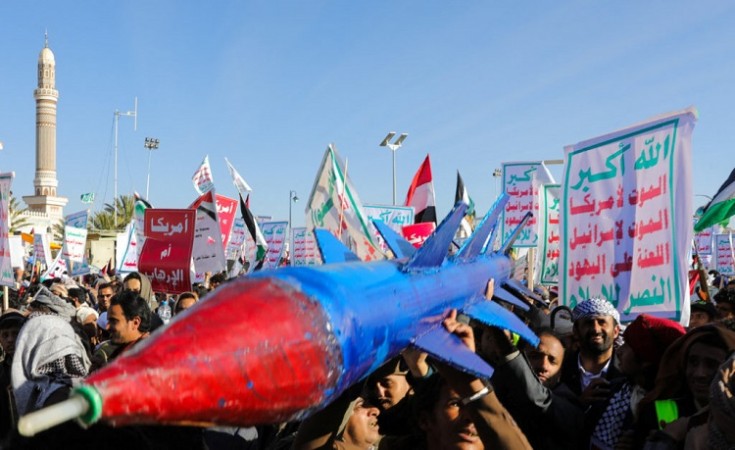
Houthi rebels from Yemen launched a missile at a US warship in the Gulf of Aden on Friday, prompting the vessel to intercept and destroy the projectile, according to US military sources. This incident marks a significant escalation in tensions, constituting one of the most serious confrontations at sea involving the US Navy in the Middle East in decades. The attack on the USS Carney destroyer occurred amidst ongoing assaults on commercial vessels by Houthi missile fire, with another ship being set ablaze on Friday night.
This marks the first direct targeting of a US warship by the Houthis since their attacks on shipping began in October, as per a US official speaking anonymously due to non-authorization to discuss the matter. However, the US military's Central Command initially stated that the missile was fired "toward" the Carney, indicating uncertainty about the intended target, a common challenge in previous strikes by the Houthis.
Following the outbreak of the Israel-Hamas conflict, the US has been cautious in its characterization of the strikes against its bases and warships, aiming to prevent broader regional escalation. However, analysts like Brad Bowman of the Foundation for the Defense of Democracies argue that tempering language may inadvertently embolden the Houthis.
In Friday's attack, an anti-ship ballistic missile approached the USS Carney, an Arleigh-Burke class destroyer involved in operations against the Houthi campaign since November. Fortunately, the missile was successfully intercepted, with no reported injuries or damage to the vessel.
The assault adds to a series of Houthi attacks on ships in the Red Sea and surrounding waters, disrupting global trade amid the ongoing conflict between Israel and Hamas. While Houthi military spokesperson Brig. Gen. Yahya Saree did not directly acknowledge the Carney attack, he claimed responsibility for a missile strike on a commercial vessel, identifying it as the Marshall Islands-flagged tanker Marlin Luanda.
The UK Maritime Operations also confirmed a missile strike on a vessel in the Gulf of Aden, although specifics on casualties were not immediately available. The US and UK have responded to previous Houthi attacks with airstrikes targeting missile depots and launcher sites in Yemen.
Since November, the Houthis have targeted ships in the Red Sea, purportedly in retaliation for Israeli actions in Gaza. However, their targets have often lacked clear links to Israel, endangering maritime routes vital for global trade between Asia, the Middle East, and Europe.
The rebels have recently expanded their threats to include American and British ships. Just days before the USS Carney incident, two American-flagged ships came under attack, leading to the interception of some projectiles by a US Navy warship.
The Commander of the US Navy in the Middle East has described the Houthi attacks as the most severe since the Tanker War of the 1980s, a period marked by naval confrontations between the US and Iran.
US, UK Launch Second Round of Strikes on Yemen's Huthis Amid Threats of Retaliation